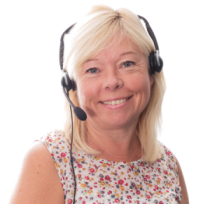Travelling with a disability during Covid-19
From 4th July, the Government are lifting restrictions on travel. The social distancing guidelines are also changing. We are still encouraged to maintain a 2-metre distance if possible, but precautions are in place for when that is not practical. We take a look at the guidelines for travel, exemptions that may apply and additional precautions you can take. We also reflect on what the guidelines mean for anyone travelling with a disability.
Government guidelines for travelling safely during the pandemic
Despite the relaxation of the rules, we are still being encouraged to work from home where possible, thus avoiding travel. By the same token, the Government ask that we shop locally and less frequently and consider other forms of transport rather than using public transport. They suggest cycling and walking, but this is not possible for all of us.
If you do need to use public transport, it is advisable to avoid busy routes and times and keep your distance from others where possible. Wash or sanitise hands regularly, carrying a travel-sized hand sanitiser is a great idea.
We are all asked to avoid travelling at all if experiencing symptoms of coronavirus, self-isolating due to having symptoms, sharing a household with somebody with symptoms or at the request of the NHS test and trace service. Anyone who has been defined as extremely clinically vulnerable from Covid-19 and has been asked to shield should not travel if it is not possible to shield during your journey.
Face coverings are now compulsory on public transport in England unless any of the below exemptions apply to you. The covering must go over both the nose and the mouth. This applies to travel by bus, coach, train, tram, aircraft, cable car, ferry, hovercraft, and other vessels. Those who do not face a £100 fine. Taxi and private hire vehicle drivers are entitled to refuse passengers not wearing a face covering.

If travelling by car, we are asked to avoid car sharing with anyone outside of our household or support bubble where possible. If we do need to car share with others, it is best to stick to small groups, open windows, and share transport with the same people each time. Face away from each other and maximise distance between passengers. The car should be cleaned between journeys and drivers and passengers should wear a face covering where possible.
Exemptions to the travel guidance for those with a disability
The face covering requirement does not apply to children under 11 years old or anyone with an illness or impairment, either physical or mental, or a disability that prevents you from wearing one. The exemption applies if you cannot put the face covering on, wear it or remove it. It also applies to anyone for whom wearing, putting on or removing the covering would cause severe distress.
Anyone travelling with or helping someone who needs to lip read is also exempt, as is anyone who needs to travel to escape from or avoid the risk of injury or harm. Removing a face covering during a journey is permitted to eat, drink or take medication or prevent harm or injury to yourself or others. Officials such as rail staff and police officers may also ask you to remove a face covering.
If you need help when travelling, it is still recommended to contact the transport operator. If problems arise or you feel ill, speak to a member of the transport staff and in an emergency, call 999 as normal.
Additional precautions
The Government has confirmed that the transmission risk is smallest when we are able to maintain a social distance of 2 metres. If this is not possible, we should keep 1 metre apart and take additional precautions.
Firstly, limit the number of people you have contact with. One suggested way of doing so is to avoid travelling at peak times. Regularly wash or sanitise hands, use a face covering and try not to touch your face. Always use a tissue or the inside of your elbow if you cough or sneeze. When on public transport, try to travel beside or behind people instead of facing them if seating arrangements make this possible. The fewer surfaces you touch the better, try to stay outdoors as much as you can and keep time spent close to others at a minimum. Talking loudly, singing and shouting should be avoided. Safely dispose of any rubbish, including face coverings that are disposable.
What the guidelines mean for anyone travelling with a disability
The most important thing to take from this is that if you are at high risk of serious illness from Covid-19, it is still necessary to keep travel to a minimum. Public transport is set to get busier so avoid it if possible. That said, if you need to travel, there are exemptions in place that allow you to do so safely with or without a face covering.
For further information on travelling during Covid-19, click here.

